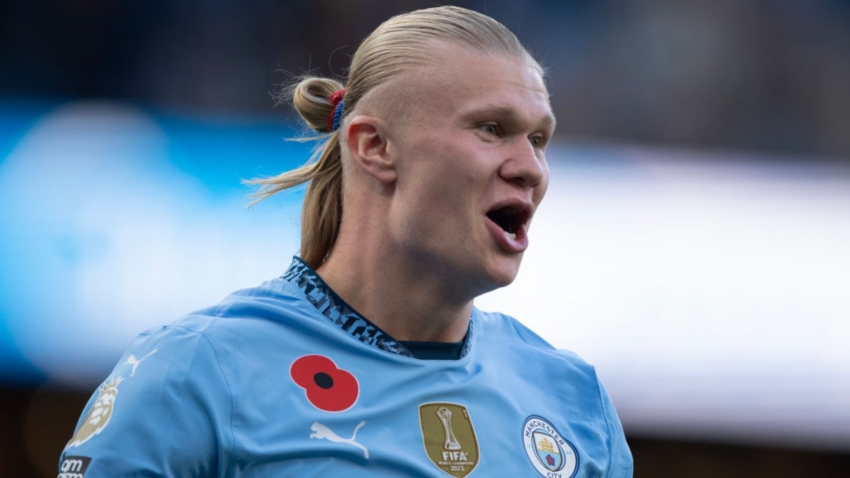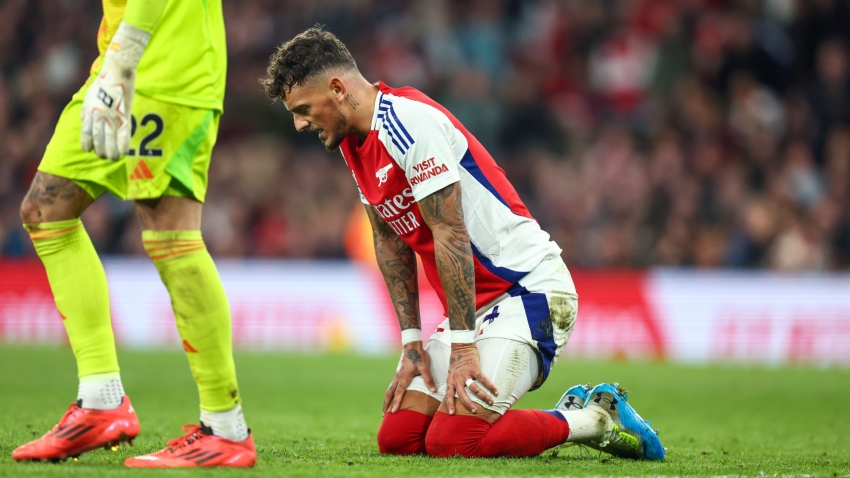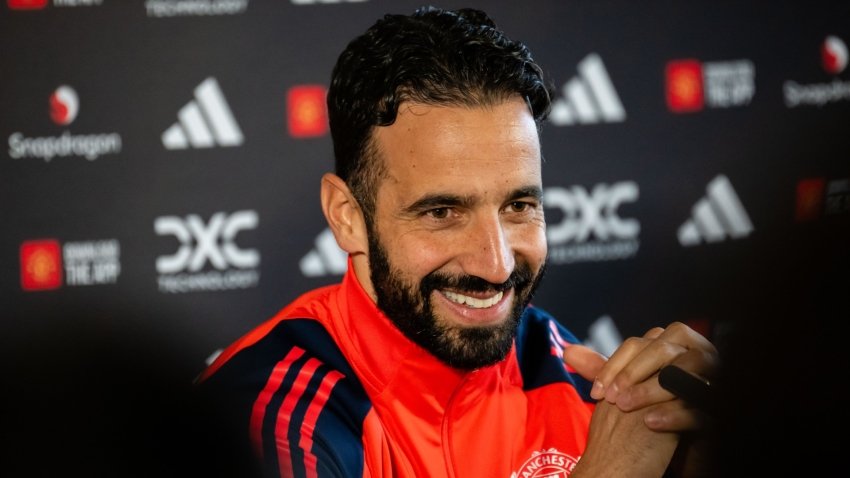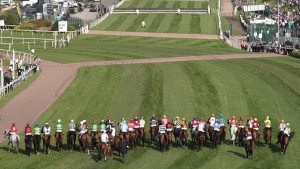The Randox Grand National is to remain at its current start time of 5.15pm, despite the British Horseracing Authority launching a new ‘premier tier’ of racing between 2-4pm on Saturday afternoons.
The period between 2pm and 4pm will be restricted to three meetings, including up to two ‘premier’ cards, with other Saturday fixtures scheduled to start after the window ends or, on occasions, before it opens.
But racing’s “crown jewels” will take place outside the allotted ‘shop window’, with the Betfred Derby another due to be later than 4pm in 2024.
BHA chief executive Julie Harrington and Richard Wayman, chief operating officer, took questions from the press via Zoom following the announcement of the new strategy.
Wayman said of the National: “There will be certain Saturdays of the year, exceptional Saturdays, when the key race is not in the 2-4pm slot.
“In 48 or 49 Saturdays of the year that will be how it works, but there will be two or three others when we’ll have to be flexible and do something different, like for the Grand National and the Derby. We won’t stick rigidly to 2-4pm if the big race of the day is off at 5.15pm, so there will be some flexibility.”
Harington added: “Around the crown jewel fixtures we need to make sure we use our core fixtures to best advantage. So if we know there are people in betting shops on the morning of the Grand National there could be a live fixture for people to be betting on, so they are some of the innovations we are looking to do with the core fixtures.”
One afternoon in July that has caused much wringing of hands in the past is the so-called ‘Super Saturday’ which sees the July Cup at Newmarket, John Smith’s Cup at York, the Summer Mile at Ascot and a fixture at Chester, the latter now looking a prime candidate to be moved to either an earlier or later slot.
When asked if that day would now be a thing of the past Wayman said: “That would be a typical Group One Saturday when there would be three fixtures in the premier window. What would differ compared with currently is that the fourth fixture would not race between 2-4pm, it would have to move outside that window.
“There are financial incentives for some of those racecourses to stage a premier fixture on a different day, a Sunday for example, and that might be attractive and it might not, but if it isn’t it will still be different to what it is at the moment.”
He went on: “Premierisation will happen every Saturday, but most Saturdays there will just be a two-hour window when there will only be three fixtures, up to two will be premier fixtures. On a smaller number of Saturdays we will allow four fixtures in the two-hour window. Premierisation will exist 52 weeks of the year. Roughly two-thirds of Saturdays will have three fixtures in the protected window, we’ll look to do that on the bigger Saturdays.”
The key question among all this, though, is where is the extra money coming from?
Harrington replied: “Anybody who has been around this process for a lot of years realises the next phase is around funding proposals that are normally approved by September time. Underpinning this is higher minimum values for those premier races, we think it’s going to be around 10 per cent of the fixture list.
“We know that our funding is a blending of executive contribution and central funding and those new higher minimum values, I should anticipate, will be in the same way but we now need to work through with our colleagues at the racecourses and the Levy Board about how that is going to work.”
And will courses who lose Saturday afternoon slots be offered compensation?
“It is too early to say,” said Harrington. “The funding process every year is a really complex jigsaw to put together, but rest assured the discussions have already begun but it is underpinned that the premier tier will have enhanced levels of prize-money.”
The lack of quality on a Sunday has long been cristicised, and Harrington said a key aim of the BHA is to improve it.
“In the past racing has tried to get a quality product going on a Sunday before, but we need the whole sport to take a more strategic view. Potentially there will be incentives put in place to fill those slots,” she said.
Wayman added: “There has been a general reluctance for commercial reasons to move to Sundays, but one of the things we see changing in 2024 is the opportunity to stage premier fixtures and all that comes with that, which could involve different funding which may provide greater incentive to move to a Sunday than they have had in the past.
“It might not be sufficient for all courses to race on a Sunday as their business model is just not going to work. However, there are a number of courses who stage some decent fixtures on a Sunday that with further investment could be even better, Pontefract for example.”
Crucially, can the BHA give any guarantees that premierisation will work?
“Like most industry strategies it is based on a set of assumptions, but they have not been plucked out of the air,” said Harrington.
“It has been helpful having open relationships with media rights companies, racecourses and bookmakers around the hard facts of the revenues coming in at the moment. What is absolutely important is that we don’t take a one-year view of this because if you did you wouldn’t do anything. We’ve got to remember the aim is to produce a more attractive product.
“While we may lose some attendance revenue on a Saturday afternoon it is more than offset by growing off-course revenues because we know that we cannibalise our own revenue within that Saturday afternoon slot. We need a multi-year approach and to be brave.”




























